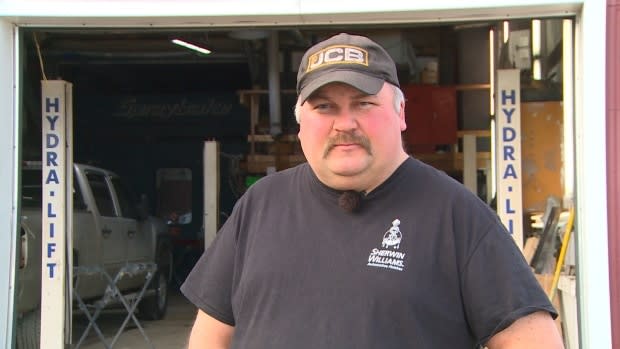Had an accident in Saint John? You may get a bill from the city
Saint John Council will vote next month on a proposal to charge fees to recover costs for many fire department responses.
One of those charges would see bills mailed to non-residents involved in car accidents inside city limits.
The fees are included in a long list of options under consideration to deal with the city's anticipated $10 million deficits in 2021 and 2022.
Other emergency response fees are being considered for commercial, industrial or institutional fires, hazardous material calls and such things as high angle or water rescues and elevator incidents.
Rothesay body shop owner David Brown thinks the motor vehicle response charge is a bad idea that will only create division between communities, and might even discourage people from calling 911.
"I think that's ridiculous," said Brown, who owns Autobody Plus. "I hope that never passes, anything like that where we start to segregate towns and start to isolate people. We should be light years past that by now."
Saint John deputy chief Rob Nichol says the department currently does not have fees for any emergency service.
But such charges are not unusual in some Canadian provinces.
Ontario and Alberta communities have the option to charge vehicle owners directly or indirectly for responses to motor vehicle accidents.

Ontario also pays local fire departments $450 dollars for the first hour for a response to accidents on provincially designated highways.
Those fees are then passed along to the vehicle owner.
Alberta's Safety Codes Act allows municipalities to charge for any emergency service they choose.
For the City of Red Deer, that extends to all emergency responses, even house fires.
In the case of motor vehicle accidents the car owner is charged $615 for the first hour or part hour that emergency responders are on scene, and half that amount for every half hour beyond that.
The fee is the same for both residents and non-residents.
The Insurance Bureau of Canada says many, but not all, motorists in New Brunswick will then be able to pass those fees along to their insurance companies.
"Insurance would cover it if you had collision coverage," said Amanda Dean, the bureau's vice president for the Atlantic region. "It's optional. If it's an older vehicle, you don't necessarily have that coverage."
Leased vehicles, in all cases, would be covered.
But Dean says, if insurers find themselves processing a lot of those claims, it could lead to an increase in car insurance rates.

